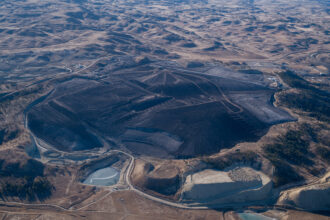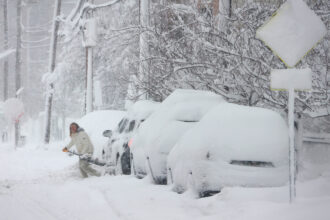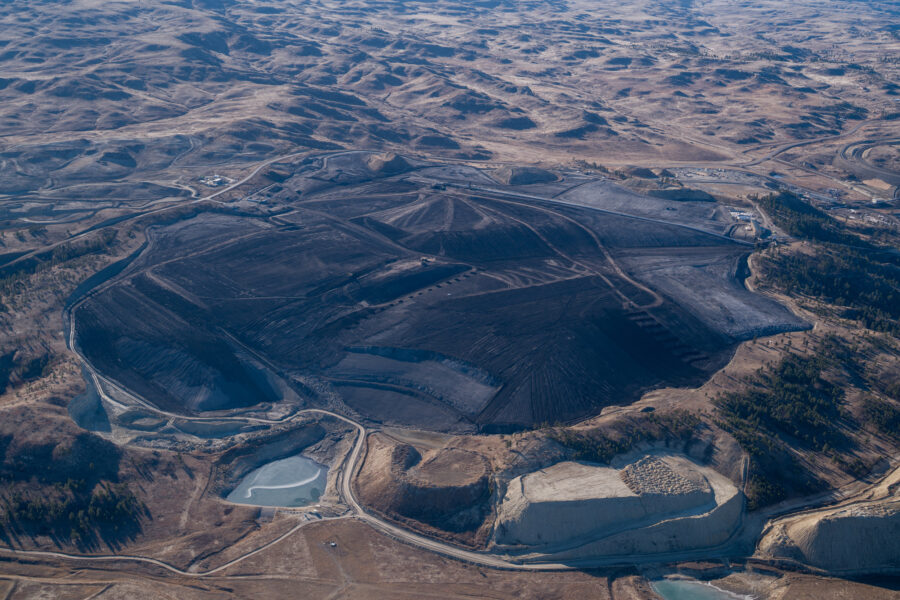The impact of climate legislation stretches well beyond the environment. Climate policy will significantly impact jobs, energy prices, entrepreneurial opportunities, and more.
As a result, a climate bill must do more than give new national priority to solving the climate crisis. It must also renew and maintain some of the most important — and hard-won — national priorities of the previous centuries: equal opportunity and equal protection.
Cue the Climate Equity Alliance.
This new coalition has come together to ensure that upcoming federal climate legislation fights global warming effectively while protecting low- and moderate-income consumers from energy-related price increases and expanding economic opportunity whenever possible.
More than two dozen groups from the research, advocacy, faith-based, labor and civil rights communities have already joined the Climate Equity Alliance. They include Green For All, the NAACP, the Service Employees International Union (SEIU), the Center for American Progress, the Center on Budget and Policy Priorities, Oxfam, and the United States Conference of Catholic Bishops.
To protect low-and moderate-income consumers, the Alliance believes climate change legislation should use proceeds from auctioning emissions allowances in part for well-designed consumer relief.
Low- and moderate-income households spend a larger chunk of their budgets on necessities like energy than better-off consumers do. They’re also less able to afford new, more energy-efficient automobiles, heating systems, and appliances. And they’ll be facing higher prices in a range of areas — not just home heating and cooling, but also gasoline, food, and other items made with or transported by fossil fuels.
The Alliance will promote direct consumer rebates for low- and moderate-income Americans to offset higher energy-related prices that result from climate legislation. And as part of the nation’s transition to a low-carbon economy, it will promote policies both to help create quality "green jobs" and to train low- and moderate-income workers to fill them.
But the Alliance goes further – it promotes policies and investments that provide well-paying jobs to Americans. That means advocating for training and apprenticeship programs that give disadvantaged people access to the skills, capital, and employment opportunities that are coming to our cities.
The Climate Equity Alliance has united around six principles:
1. Protect people and the planet: Limit carbon emissions at a level and timeline that science dictates.
2. Maximize the gain: Build an inclusive green economy providing pathways into prosperity and expanding opportunity for America’s workers and communities.
3. Minimize the pain: Fully and directly offset the impact of emissions limits on the budgets of low- and moderate-income consumers.
4. Shore up resilience to climate impacts: Assure that those who are most vulnerable to the direct effects of climate change are able to prepare and adapt.
5. Ease the transition: Address the impacts of economic change for workers and communities.
6. Put a price on global warming pollution and invest in solutions: Capture the value of carbon emissions for public purposes and invest this resource in an equitable transition to a clean energy economy.
To learn more about the Climate Equity Alliance, contact Jason Walsh at [email protected] or Janet Hodur at [email protected].
About This Story
Perhaps you noticed: This story, like all the news we publish, is free to read. That’s because Inside Climate News is a 501c3 nonprofit organization. We do not charge a subscription fee, lock our news behind a paywall, or clutter our website with ads. We make our news on climate and the environment freely available to you and anyone who wants it.
That’s not all. We also share our news for free with scores of other media organizations around the country. Many of them can’t afford to do environmental journalism of their own. We’ve built bureaus from coast to coast to report local stories, collaborate with local newsrooms and co-publish articles so that this vital work is shared as widely as possible.
Two of us launched ICN in 2007. Six years later we earned a Pulitzer Prize for National Reporting, and now we run the oldest and largest dedicated climate newsroom in the nation. We tell the story in all its complexity. We hold polluters accountable. We expose environmental injustice. We debunk misinformation. We scrutinize solutions and inspire action.
Donations from readers like you fund every aspect of what we do. If you don’t already, will you support our ongoing work, our reporting on the biggest crisis facing our planet, and help us reach even more readers in more places?
Please take a moment to make a tax-deductible donation. Every one of them makes a difference.
Thank you,












